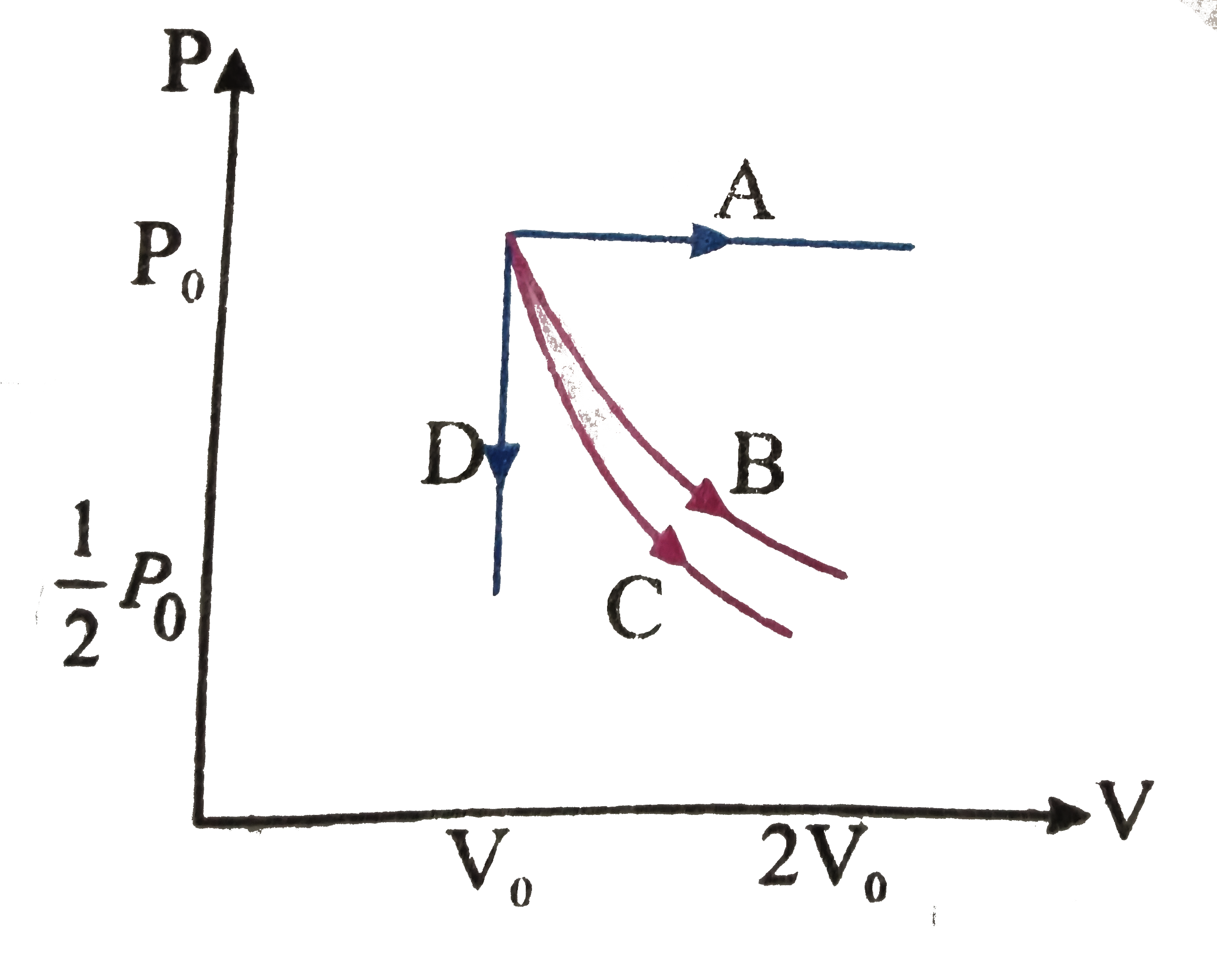In different experiments an ideal gas is expanded through
(i) Isothermal
(ii) Adiabatic
(iii) Isobaric process
In which of the processes mentioned the internal energy of the gas may decrease?
The correct Answer is:Adiabatic
Step by step video, text & image solution for In different experiments an ideal gas is expanded through (i) Isothermal (ii) Adiabatic (iii) Isobaric process In which of the processes mentioned the internal energy of the gas may decrease? by Physics experts to help you in doubts & scoring excellent marks in Class 11 exams.
Topper's Solved these Questions
- BOOK - ARIHANTCHAPTER - FIRST LAW OF THERMODYNAMICSEXERCISE - Level 234videos
FIRST LAW OF THERMODYNAMICS
- BOOK - ARIHANTCHAPTER - FIRST LAW OF THERMODYNAMICSEXERCISE - Level 36videos
FIRST LAW OF THERMODYNAMICS
- BOOK - ARIHANTCHAPTER - ELASTICITYEXERCISE - Level 31videos
ELASTICITY
- BOOK - ARIHANTCHAPTER - FLUIDSEXERCISE - All Questions70videos
FLUIDS
Similar Questions
Knowledge Check
- Question 1 - Select One
In an adiabatic process 90 J of work is done on the gas. The change in internal energy of the gas is
A−90jB+90jC0 jDDepends on initial temperature - Question 2 - Select One
In an isothermal process for an ideal gas
AΔQ=0BΔW=0CΔU=0DΔV=0 - Question 3 - Select One
In an isothermal process for an ideal gas
AΔQ=0BΔW=0CΔU=0DΔV=0
The PV diagram shows four different possible paths of a reversible processes performed on a monoatomic ideal gas. Path A is isobaric, path B is isothermal, path C is adiabatic and path D is isochoric. For which process does the temperature of the gas decrease?
 View Solution
View SolutionWhen the gas is ideal and process is isothermal, then
View SolutionIf an ideal gas is isothermally expanded its internal energy will
View SolutionIf an ideal gas is isothermally expanded ,its internal energy will
View SolutionIn an isothermal process for ideal gas.
View Solution

